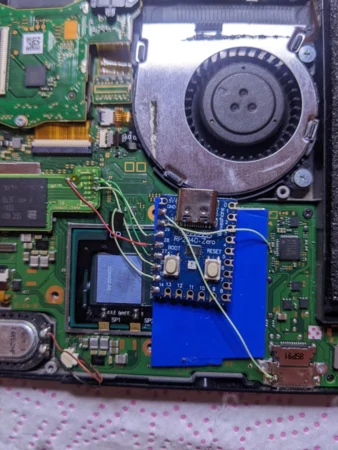Key Takeaways
1. A Japanese court sentenced Fumihiro Otobe to two years in prison (suspended for three years) for selling modified Switch consoles used for piracy.
2. Otobe was fined approximately $3,500 for altering Switch motherboards to run pirated games and selling them with a bundle of 27 games.
3. In contrast, Canadian hacker Gary Bowser received a 40-month prison sentence for creating devices that bypassed the Switch’s anti-piracy features and still owes Nintendo $14.5 million.
4. Nintendo actively targets emulator creators, leading to the shutdown of the Yuzu emulator following a lawsuit, despite emulators not being illegal.
5. With upcoming Switch 2 titles priced at $80 or more, hackers are likely to seek ways to bypass the new console’s protections, prompting Nintendo to continue its anti-piracy efforts globally.
Nintendo has been actively targeting those who enable the illegal downloading of Switch games. While prison sentences have been rare, on April 14th, a 58-year-old individual was found guilty by a Japanese court for selling modified Switch consoles. This ruling represents the first jail time related to Nintendo piracy in Japan.
Court Ruling and Penalties
Fumihiro Otobe, the convicted man, received a two-year prison sentence, but the court suspended it for three years. This means he probably won’t serve any time behind bars, but he does have to pay a fine of about $3,500. Otobe altered standard Switch motherboards to run pirated games and sold these modified parts for around $195, which included a bundle of 27 games.
Comparisons with Other Cases
In contrast to Otobe’s case, a Canadian hacker got a much harsher punishment. Gary Bowser was arrested in 2020 and sentenced to 40 months in prison. He was part of the Team Xecuter group, which created devices that bypassed the Switch’s anti-piracy features. Bowser was released after 14 months due to good behavior but still owes Nintendo a staggering $14.5 million.
Nintendo’s Ongoing Battle Against Piracy
Nintendo has also been firm in its actions against emulator creators. While the company does not view emulators as illegal per se, it acknowledges that these programs, which replicate the Switch on PCs and other devices, are often misused for piracy. Following a lawsuit against Yuzu, a well-known emulator, its developers shut down all activities.
Modern games often require internet access, which prevents users with pirated versions from accessing essential features. Nevertheless, upcoming Switch 2 titles like Mario Kart World are expected to retail for $80 or more. As a result, hackers are likely already looking for methods to circumvent the new console’s protections. With the stakes higher, Nintendo is set to continue its fight against piracy both in Japan and globally.
Source:
Link



Leave a Reply